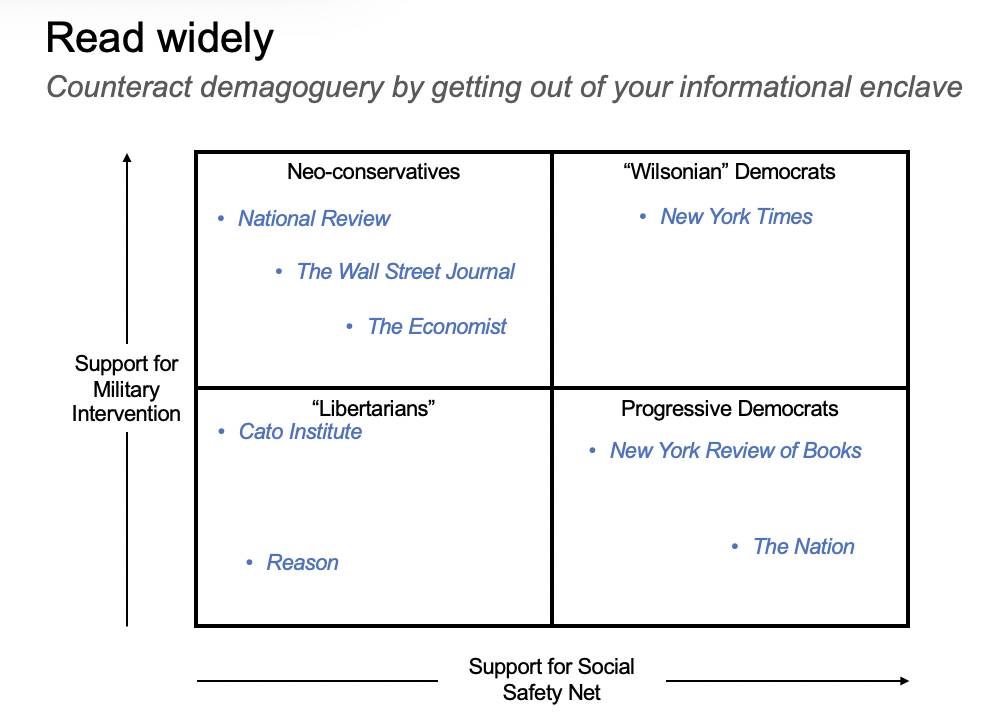
The short version of this post is that there are three triggers of procrastination, or three situations in which procrastination is a very tempting choice, and writing a book, grant proposal, article, or dissertation falls into all three areas.
Some tasks involve a lot of uninteresting drudgery, and many people procrastinate those tasks partially because the panic of being up against a deadline makes them slightly more interesting. Some tasks require that we make decisions without adequate information, and so the temptation is to delay making the decision in the hopes that we’ll get more information. Some tasks threaten our sense of self–failure at the task feels as though it would be the end of the world.
One scholar, Baker, takes those three situations and points out personality types prone to one or another (but, again, all three are part of academic writing) Amanda, the procrastinating grant-writer mentioned in a previous post, fits into the category that Baker, following Ferrari, calls “avoiders,” “who seem to have issues of self-esteem that they are confirming by putting off needed tasks and who are also very concerned with the opinions of others (they promote the idea that they did not have time rather than that they were not up to a task)”. (Baker Thief 169) That is, “avoiders” avoid tasks that have existential stakes (“am I an imposter?” “am I good enough?”). Failing to get around to the task, rather than failing at the task, leaves open the possibility that one could have succeeded if one had tried. In my experience, “avoiders” sometimes avoid scholarly tasks by taking on unnecessary service responsibilities, picking up time-consuming hobbies, or getting involved in organizations (procrastiworking). That isn’t to say that everyone engaged in service is procrastinating, or that no one should take up a hobby or get involved in community work, but that those choices might be subtle forms of procrastination.
Rose Fichera McAloon describes her undergraduate writing process: “I was terrified of criticism, of being unmasked as a fraud, of being stripped of my self- esteem, of being irreparably crushed. I wanted to write the papers, fuss over them lovingly, craft them to perfection—but would not and could not. They were always written in a slapdash way, never reread for content, and turned in with the hope that a miracle would happen and that I would beat the odds once again. It mostly worked.” (239)
Amanda’s situation (above), like McAloon’s, is one in which applying for the grant appears to have more pain associated with it than delay: if writing the grant means confronting her sense of personal inadequacy and risking rejection and exposure, why do it? The route of shoving the grants away and hoping that something comes up down the road can seem very, very attractive.
Procrastinating can seem to protect one’s self-image as a talented person. Our talent remains untested, since we didn’t fully apply ourselves. Also sometimes called “fear of failure,” or “imposter syndrome,” this strategy of procrastinating the immediate task in order to evade existential challenges is, it seems to me, difficult, but not impossible to overcome, particular with a combination of strategies (discussed in the next section), most of which involve some method of removing, reducing, or even procrastinating the shame and anxiety that writing raises for us. One strategy for managing this kind of anxiety, perhaps paradoxically, is to write through it; as a method of desensitizing, working even when feeling almost paralyzed by self-doubt becomes a foundational experience on which we build future experiences. Having done it once, and survived, we know we can do it again.
The best way to get over the anxiety that you might get a savaging review of a book or article is to have a book or article savaged. After all, it isn’t the savaging we fear, it’s some suspicion that we will be entirely destroyed by the savaging; if our identity is “a good writer” or “a smart person,” then it might seem that we will lose our very identity if an editor, committee member, reader, or reviewer tells us that a piece is badly-written, stupid, or wrong. Once you get savaged by a reviewer, and it happens to everyone, you learn that your cells did not cease to adhere, you did not melt into the floor, your friends will not shun you, and you’re okay. Sometimes you decide the piece really was pretty bad, and sometimes you decide it wasn’t that bad, and sometimes you decide the reader’s responses should be entirely ignored, and sometimes you bounce around among various responses. But, whatever response you have, you are still you, maybe a slightly more resilient you, and that might be good.
Baker notes two other kinds of procrastinators (relying on Ferrari’s research). There are “’arousal types’ who experience a ‘euphoric rush’ by putting off their work until it is too late” (Thief 169). Ferrari’s description of this kind of procrastination is similar to Piers Steel’s discussion of people prone to procrastinate boring or tedious tasks, a character he calls “Time-Sensitive Tom.” By introducing the possibility of failure, a dull task becomes more interesting; in addition, living in crisis mode is gratifying—comfortable even—for some people. A colleague once speculated that filling out book order forms a day late or rushing one’s grades in at the last minute can make it seem as though one’s life is so busy (and, by implication, the person is so important) that getting simple tasks done on time is difficult. It struck me as a cynical interpretation, till I caught myself thinking almost exactly that about myself: getting tedious tasks done on time is what drudges do; tossing too many balls in the air is what interesting people do. “Arousal types” tend toward what is described above as “just in time” procrastination. When JIT procrastination goes badly, it is the consequence of a failure to estimate time correctly and/or correctly calculate the costs and risks of failure.
Steel argues, convincingly, that impulsivity strongly correlates to procrastination (see especially 25-26), which is worsened by the fact that “We tend to see tomorrow’s goals and concerns abstractly—that is, in broad and indistinct terms—but to see today’s immediate goals and concerns concretely—that is, with lots of detail on the particulars of who, what, and when” (25). Also called “hyperbolic discounting,” this tendency to value the immediate (the bird in the hand) is one of the fundamental biases, and is implicated in a lot of bad decision-making of various kinds.6 We know the pleasure we will get from playing another computer game; the pleasure we will get from getting an article published is distant (I will later discuss how I think this tendency to favor immediate reward is one reason that people put too much time into service and teaching, since they both provide immediate rewards).
Whereas it’s useful to reduce drama in order to reduce avoidance-type procrastination (and make the task more routine), increasing the drama makes boring tasks more likely—arousal types may procrastinate to make something less routine. Steel emphasizes the importance of planning, saying, “Proper planning allows you to transform distant deadlines into daily ones, letting your impulsiveness work for you instead of against you” (39). Thus, the method for dealing with “avoidance” procrastination can be very different from the best method for dealing with “arousal” procrastination.
Similarly, the best methods for managing “Decisional procrastinators”—people “who procrastinate because they cannot make up their minds” (Thief 169)—are somewhat different from the avoidance or arousal procrastination. For some academics, grading, serving as an outside reviewer (for journals or presses), or reading dissertations trigger “decisional” procrastination. Afraid that we might assign the wrong grade, or that we might unfairly reject an article, we put off making the decision. Decisional procrastination is not necessarily a bad choice; in fact, David Allen’s very useful Getting Things Done is largely about being deliberate regarding decisional procrastination. If it is a decision about which it is possible to get more information, and plausible that we will, then deliberately delaying it (but not losing track of it) is a rational strategy. The strategies for managing this kind of procrastination are also discussed later, but mostly involve setting reasonable deadlines, not just for completing the task, but for trying to get the information that would make the decision easier to make. People who have an aversion to closure are particularly prone to decisional procrastination, and so can benefit by finding ways to make decisions that are contingent (this can be done in regard to grading in various ways, also discussed later).
It’s because these various kinds of procrastination can happen at different moments during the same project that I’m dubious about the accuracy or utility of identifying them as different kinds of people: a person might be an “avoidance” procrastinator in regard to writing an article, an “arousal” procrastinator in regard to preparing the Works Cited, and a “decisional” procrastinator in regard to where to submit the manuscript. The same task might trigger different kinds of procrastination in different people: some people find that grading triggers “arousal” procrastination (because they find it tedious), and some people find that it triggers “decisional” procrastination (because they are unsure about their grading), and some people find that it triggers “avoidance” procrastination (because reading papers raises insecurities about the job they have done as teachers).
So, I think most of us are prone to all three kinds of procrastination, especially since academic writing presents all three situations. Still and all, knowing about the three can help figure out which one we’re doing right now, and that will help us decide which strategies might work. I think understanding the different triggers also helps reduce shame. There are so many books of advice out there–Destination Dissertation, Writing Your Dissertation in Fifteen Minutes a Day, Getting Things Done–and they all work for a bit and under some circumstances because they’re useful for one or two of the kinds of procrastination. But they all stop working at some point or in some situations. In my experience, grad students or faculty can then fall into a shame/anxiety spiral, thinking they suck, and they’ll never finish. It’s just that they need some new strategies–not for ever, but for this moment.









